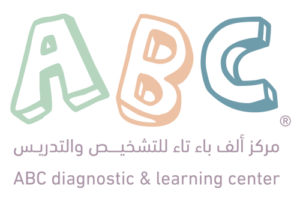What is Autism Spectrum Disorder? How can you deal with it? Here is a brief and general look. Autism Spectrum Disorder is a status connected with brain improvement. So, it affects the way that the patients deal with people and how they recognize them on the social aspect.
As a result, this will lead to problems while interacting and communicating socially. Also, this disorder refers to the limited and frequent acquired of behavior. Therefore, The family of this patient should treat him carefully, because he may face a wide range of symptoms and different levels of intensity as well.
This article will shed light on the relationship between autism spectrum disorder and anxiety during COVID-19.
What is the relationship between autism spectrum disorder and anxiety?
A recent American study has shown that children who have autism spectrum disorder are more likely to be injured with mental disorders such as anxiety, mood disorders and depression.
During COVID-19, all the world has gone through a hard time of being months in quarantine. As a result, all people have been exposed to various changes like staying inside homes or not going to school or work, not being with friends and relatives. This leads to severe mental pressure and extreme mood swings.
Aside from the lockdown, all the facilities and institutions have shut down. Consequently, it would be hard for families who have children with autism to experience all of these challenges amid lockdown that has forced them to deal with their children alone.
Here are many indications that may help you know if your child has autism or not. Have a look at these symptoms:
- Difficulties in learning new things; if your child finds that learning is hard and you can’t handle his learning process.
- Limited eye-connection
- Not able to communicate well with their parents and siblings
- Sudden and unexpected behaviors such as aggressive behaviors or being introvert
Or You can visit ABC website to ask for counseling, they offer you services based on academic background and enough experience to help you with the next step.
How COVID-19 impeded autistic children?
Staying for long hours at home is considered one of the main factors that may be hard for them. For instance, they used to carry out the same daily routine several years ago. In other words, they were going to school, meeting their friends and playing with each other, and going to their doctors face to face to follow their cases. But, the tide has turned, they will by force have to go with the flow and doing all the things online. Ultimately, children couldn’t bear anything new and this will negatively harm them.
Furthermore, during all the new and unprecedented lifestyles, they will suffer from severe psychological pressure and may lead to complications like Self-harm and Aggression.
How should families deal with their autistic children?
Well-educated families already know the conditions of their autistic children and how they should handle them properly. But with Covid-19, it would be hard for all people to deal during the lockdown. So, here are some tips you can refer from them when your children feel down:
- Waking up at a specific time every day is considered a helping factor to reduce the negative feeling.
- Organizing a fixed schedule for your autistic child to be responsible for doing it by himself.
- Providing a natural life; the family should take into consideration the atmosphere of the house. Peace, love, and calm must fill the house.
- Motivating him to practice his talents and hobbies; the parents should encourage their child to improve and work on his talents and not quit it.
- Expanding his skills during quarantine; train the child to gain more good practices and skills will help him a lot.








